Sleep Apnea – Wayland, MA
Solutions for Sleep-Disordered Breathing
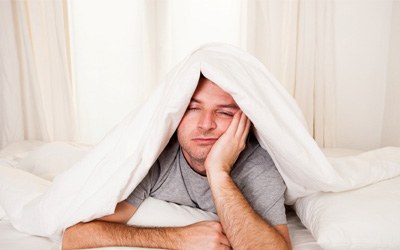 Loud snoring can be a nuisance for other nearby sleepers, but it may also be a sign that you’re suffering from sleep apnea. This is a common sleep disorder that can not only leave you feeling more tired than normal but can also have severe consequences for your dental health.
Dr. Putt
,
Dr. Dines
,
Dr. Braga
, and the rest of our team at Wayland Dental can help you find a solution for your sleep apnea. As such, give us a
call
if you’re concerned about the quality of your slumber.
Loud snoring can be a nuisance for other nearby sleepers, but it may also be a sign that you’re suffering from sleep apnea. This is a common sleep disorder that can not only leave you feeling more tired than normal but can also have severe consequences for your dental health.
Dr. Putt
,
Dr. Dines
,
Dr. Braga
, and the rest of our team at Wayland Dental can help you find a solution for your sleep apnea. As such, give us a
call
if you’re concerned about the quality of your slumber.
Why Choose Wayland Dental for Sleep Apnea Treatment?
- Fully Customized Oral Appliances
- Multiple Dental Experts in One Location
- Welcoming Practice with Convenient Hours
What is Sleep Apnea?
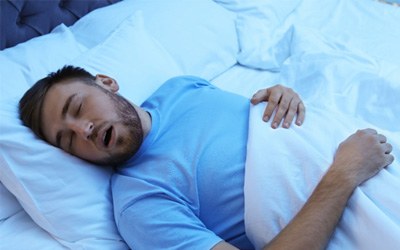
Sleep apnea is a condition where a person suffers repeated pauses in their breathing while they’re asleep. There are three major forms of sleep apnea with the most common one being obstructive sleep apnea, which occurs when the airways become blocked by relaxed muscles in the throat.
One of the things that makes sleep apnea so dangerous is that many people don’t even realize that they have it. You should therefore familiarize yourself with the potential warning signs of sleep apnea, which can include:
- Snoring loudly.
- Occasionally waking up while gasping for air.
- Constantly feeling tired.
- Headaches, especially in the morning.
- Memory problems.
- Mood swings.
These symptoms alone may not necessarily guarantee that you have sleep apnea. As such, a sleep test will need to be performed so that the underlying problem can be accurately diagnosed.
The Dangers of Sleep Apnea
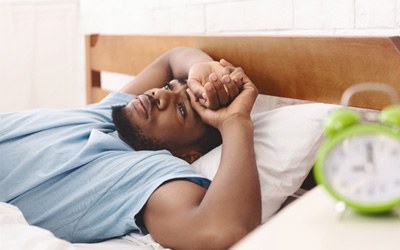
Sleep apnea can actively prevent you from getting enough quality sleep, and the resulting exhaustion can make you more prone to life-threatening accidents at work and on the road. Your overall quality of life can potentially suffer as well due to having a harder time remembering things or potentially struggling with symptoms of depression.
In the long term, people with sleep apnea are more likely to experience dangerous health issues such as heart attacks, diabetes, and strokes. The disorder could also potentially raise the risk of pre-term birth in pregnant women.
Sleep Apnea Treatment Options
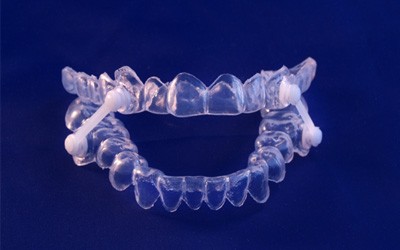
Once your sleep apnea has been diagnosed by an expert, your next step is to figure out the best way to treat it. In many cases, a CPAP machine can be used to help you maintain an unblocked airway while you slumber. However, this option is not for everyone; not only do CPAP machines make a lot of noise, but some individuals find them too uncomfortable to use.
Our practice is proud to offer CPAP-intolerant patients an alternative: personalized oral appliances. The purpose of an oral appliance is to reposition your mouth in a way that helps keep the airways clear, thus preventing sleep apnea episodes. Some oral appliances can also help keep the tongue in place so that it doesn’t collapse and block the flow of air.
Do you have sleep apnea and think an oral appliance might help you enjoy more restful nights? Schedule a consultation with our team today.
Understanding the Cost of Sleep Apnea Treatment
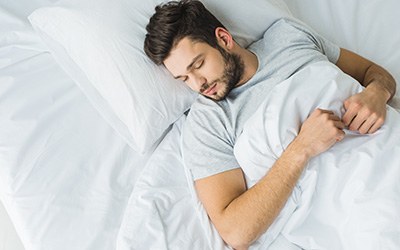
It’s important to have sleep apnea addressed as soon as possible, but before you begin your treatment, you should make sure that you have an accurate idea of how much it will cost. Our team will take the time to review the various factors that can have an impact on the amount that you ultimately end up paying for sleep apnea treatment; on top of that, we can help you explore your options for making the cost more manageable.
Does Dental Insurance Cover the Cost of Sleep Apnea Treatment?
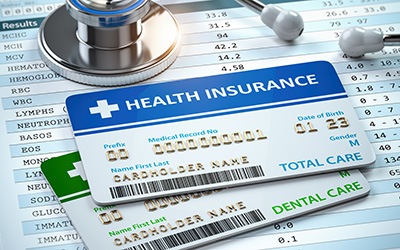
While sleep apnea can potentially be addressed by a dentist, it is considered a medical issue rather than a dental one. Consequently, your dental insurance most likely won’t provide any coverage for sleep apnea treatment. That said, there’s a good chance that you can still use your medical insurance to help pay for such services. If you’re not sure how your current plan handles sleep apnea treatment, try reaching out to your insurance provider.
Factors That Affect the Cost of Sleep Apnea Treatment
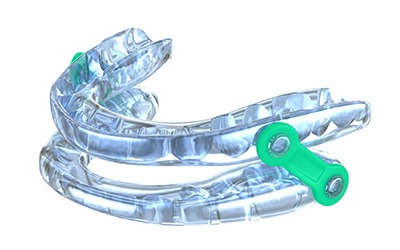
Obviously, the type of treatment can make a significant difference. A personalized oral appliance won’t carry the same price tag as a CPAP machine. On top of that, the details of your insurance plan can have an impact on the amount you need to pay out of your own pocket for your care.
It’s worth noting that before you can pursue sleep apnea treatment, you will need to undergo a sleep test so that your sleep disorder can be properly diagnosed. The sleep test will come with a cost of its own, so keep that in mind.
Treat Your Sleep Apnea Now to Improve Your Health
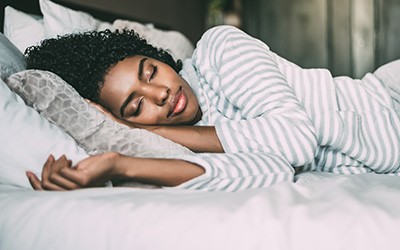
You may be worried about the cost of treating sleep apnea, but ignoring the problem for too long can put even more strain on your bank account. Unaddressed sleep-disordered breathing can ultimately lead to heart attacks and other severe medical complications that can be costly to deal with. On top of that, the excessive tiredness associated with sleep apnea can increase your risk of getting into an accident while driving, which can lead to expensive injuries and vehicle repairs.
Having sleep apnea treated now is the better choice for your health and your quality of life, and it can ultimately end up saving you money.
Making Sleep Apnea Treatment More Affordable
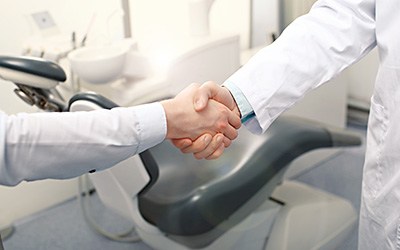
Whether you need sleep apnea treatment or another type of service, we want you to be able to get the care you deserve without breaking the bank. That’s why we offer patient financing, which gives you the option of paying for your treatment in installments rather than all at once. This can make it significantly easier to fit the cost of a customized oral appliance into your budget. Don’t hesitate to speak to our team if you’re interested in learning more about patient financing.
Sleep Apnea FAQs
Can My Dentist Diagnose Sleep Apnea?
Dentists can screen for sleep apnea, but they cannot actually diagnose it. In order to confirm whether you’re truly experiencing sleep apnea, your dentist will need to refer you to a sleep doctor who can perform the necessary tests to determine the true nature of your sleep problems.
Once it has been confirmed that you are experiencing sleep apnea, you can start exploring your treatment options. Depending on the underlying cause and severity of your sleep apnea, your dentist may be able to help you find relief with an oral appliance that has been customized for your unique mouth.
What Does Sleep Apnea Look Like for Women?
It’s all too common for sleep apnea to be misdiagnosed in women due to the fact that they tend to have different symptoms than men. Notably, men with sleep apnea often snore loudly and feel unusually tired during the day. Meanwhile, women with sleep apnea will often experience insomnia, depression, and anxiety.
It should be noted that some women are more likely to develop sleep apnea than others. If you are a woman who is pregnant, post-menopausal, or overweight, it’s important to keep an eye out for the potential warning signs of sleep-disordered breathing.
Will an Oral Appliance Make CPAP Therapy Unnecessary?
It might. An oral appliance can often be an effective solution for mild or moderate cases of sleep apnea, which can make it a good alternative for patients who would rather not use a CPAP machine. However, an oral appliance by itself may not work as well for individuals with particularly severe sleep disorders. Our team will need to consider the specifics of your situation carefully before we can determine whether switching from CPAP therapy to an oral appliance is the best option in your case.
How Long are Apnea Events or Episodes?
A pause in your breathing needs to last for at least 10 seconds to be considered an apnea episode. Of course, it should be noted that some episodes are far longer than that; some can even last for up to 2 minutes.
Depending on the severity of your sleep apnea, episodes can occur anywhere between 5 to 30 times an hour while you’re sleeping. A sleep test can be used to determine how often episodes occur in your case and how long they last; this information is critical for determining how severe your sleep disorder is.
How Soon After Sleep Apnea Treatment Will I Notice Improvement?
When you first start wearing an oral appliance to treat sleep apnea, it may take a couple of nights for you to fully get used to it. That said, you can often expect to see an improvement in the quality of your sleep almost immediately. It typically won’t take too long before you notice that your symptoms are lessening or subsiding. However, you will need to have another sleep test performed if you want to confirm that the oral appliance is working as desired.
